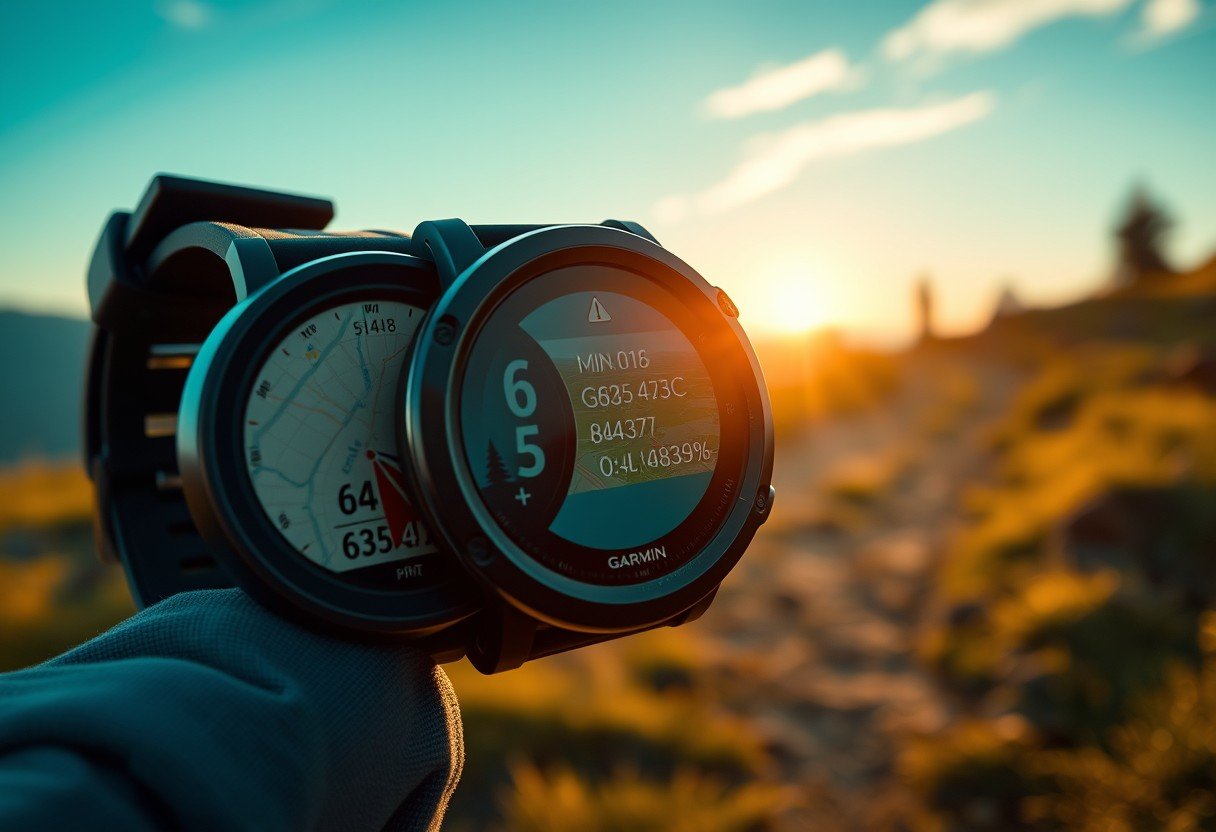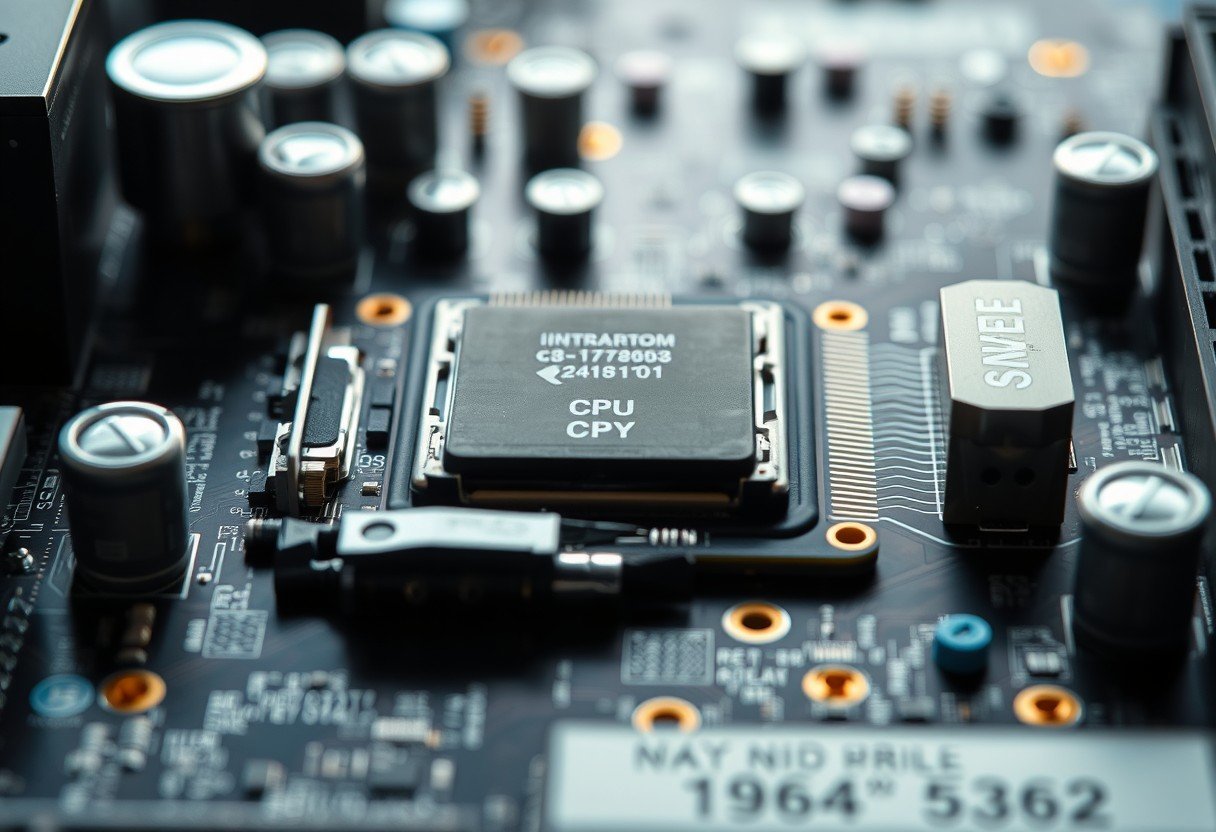It’s vital to know whether your Garmin watch delivers the GPS accuracy you need for your outdoor adventures or fitness tracking. Garmin devices are widely recognized for their robust GPS capabilities, but you may find yourself questioning how they compare to other brands. In this post, we will research into the specifics of Garmin’s GPS technology, explore various features that enhance accuracy, and provide insights to help you determine if a Garmin watch is the right choice for your needs.
Key Takeaways:
- GPS Accuracy Comparison: Garmin watches are generally known for their high GPS accuracy compared to some other brands, particularly in challenging environments.
- Multi-GNSS Support: Many Garmin models utilize multiple satellite systems (GPS, GLONASS, and Galileo), which enhances positioning accuracy and reliability during outdoor activities.
- Barometric Altimeter: Garmin devices often come equipped with a barometric altimeter, helping to improve elevation data and overall accuracy in tracking elevation changes.
- Software Updates: Regular software updates for Garmin watches can enhance GPS functionalities and overall performance, ensuring users benefit from the latest technology advancements.
- User Experience: User reviews and studies show a positive consensus regarding Garmin watches’ accuracy, particularly among serious athletes or outdoor enthusiasts who rely heavily on precise data.
Understanding GPS Technology
For anyone exploring the world of GPS, it’s important to grasp the fundamentals of how this technology works. GPS, or Global Positioning System, is a satellite-based navigation system that allows devices like Garmin watches to determine their precise location, speed, and direction. By interfacing with multiple satellites, your device can triangulate its position with remarkable accuracy, making it a popular choice for athletes and outdoor enthusiasts alike.
Basics of GPS Functionality
For effective GPS functionality, your device needs to connect with at least four satellites. This connection allows it to calculate your latitude, longitude, and elevation accurately. The more satellites your device can access, the more precise your location will be. Moreover, various algorithms used in GPS devices enhance the data gathered from satellite signals, allowing for improved navigation and tracking.
Factors Influencing GPS Accuracy
With your GPS device in hand, it’s crucial to understand the numerous factors that can affect its accuracy. These elements can include:
- Satellite geometry and availability
- Environmental obstructions like buildings or trees
- Signal interference from electronic devices
- Weather conditions, such as rain or storms
The impact of these factors can significantly alter your GPS readings, leading to errors or delays in tracking your movements.
It’s important to recognize that maximizing GPS accuracy requires attention to these influencing factors. You can enhance your experience by being aware of the location of satellites and ensuring your device has a clear line of sight. Other ways to improve GPS accuracy include:
- Updating your GPS device software regularly
- Using a GPS device with better specifications
- Minimizing obstructions between your device and satellites
- Understanding the limitations of your device
The right practices can help ensure your Garmin watch provides the most accurate information during your outdoor adventures.
Garmin Watch Features
Some of the standout features of Garmin watches contribute significantly to their reputation for accuracy. With a combination of cutting-edge technology and user-friendly design, these watches are tailored for fitness enthusiasts and outdoor adventurers alike. Their robust functionality allows you to track your workouts, monitor your health metrics, and receive navigation assistance, ensuring you have all the data you need at your fingertips.
Advanced Satellite Systems
An important component of Garmin watches is their advanced satellite systems, which enhance GPS accuracy and reliability. These systems come with various features that optimize your tracking experience:
| Multi-GNSS support | Access to multiple satellite systems for improved location data |
| GLONASS compatibility | Enhanced tracking in challenging environments like dense forests |
| Galileo support | Higher precision and availability in urban settings |
| Map updates | Regular updates for accurate navigation in various terrains |
Sensor Enhancements
Features like built-in sensors elevate the functionality of Garmin watches. These include advanced heart rate monitors, altimeters, and barometers that provide you with real-time data, allowing for a comprehensive understanding of your performance and environment.
Systems within Garmin watches use sensor technology to track not just speed and distance, but also elevation changes and heart rate variability. This data can significantly enhance your training regimen by enabling you to understand the impact of different conditions on your performance. Beyond basic GPS tracking, the incorporation of these sensors can provide insights that help you optimize your workouts and recovery strategies. This holistic approach ensures you can focus on achieving your fitness goals more effectively.
Comparative Accuracy Analysis
Once again, a careful assessment of GPS accuracy reveals notable differences among various watch brands. In the following table, you can see how Garmin watches measure up against other popular competitors in terms of accuracy metrics.
| Brand | Accuracy Rating (m) |
|---|---|
| Garmin | 1-2 m |
| Apple Watch | 3-5 m |
| Fitbit | 5-10 m |
| Suunto | 2-3 m |
Garmin vs. Competitors
Comparative analysis indicates that Garmin watches consistently outperform many competitors when it comes to GPS accuracy. This is particularly crucial for athletes and outdoor enthusiasts who rely on precise distance tracking.
Real-life Performance Testing
Garmin watches often excel in real-world conditions, demonstrating superior performance over longer tracking durations and varied terrains. Your outdoor adventures become more predictable with accurate GPS data, allowing you to focus on your activity rather than worrying about potential discrepancies.
Real-life performance testing plays a significant role in validating the accuracy claims of Garmin watches. By engaging in multiple outdoor activities—from trail running to mountain biking—you can assess how well your Garmin device tracks your movements, ensuring you receive reliable data that accurately reflects your performance and distance traveled.
User Experience and Feedback
To understand the effectiveness of Garmin watches for GPS accuracy, it’s imperative to look at user experiences and feedback. Many users report satisfying navigation accuracy and consistent performance, particularly when using their devices for various sports and outdoor activities. However, concerns sometimes arise regarding battery life and how environmental factors might impact GPS tracking. Overall, the collective feedback highlights that Garmin watches are a popular choice for both recreational and serious athletes.
Sports and Fitness Applications
Experience the advantages of Garmin watches in sports and fitness applications. Whether you are running, cycling, or swimming, these devices offer precision tracking of your performance metrics, allowing you to better analyze your workouts. Users appreciate how various features, like heart rate monitoring and customizable training plans, enhance their fitness journey.
Everyday Use Cases
To make the most of your Garmin watch’s GPS capabilities in everyday scenarios, consider how it can assist you beyond athletic endeavors. Many users find value in utilizing the device for navigation, hiking, or even leisurely outdoor activities, all while receiving accurate feedback on distances traveled and landmarks encountered.
It’s important to note that everyday use cases extend beyond just fitness and sports. They include tracking your daily walks, ensuring accurate route guidance during road trips, or even mapping out new trails for hiking adventures. With your Garmin watch, you’ll have a reliable companion that tracks your movement and provides insights into your daily activities, making it useful for various lifestyle needs.
Limitations and Challenges
After examining the precision of Garmin watches, it’s vital to acknowledge that various limitations and challenges can affect GPS accuracy. Factors such as satellite availability, atmospheric conditions, and even your physical surroundings can all lead to discrepancies in tracking. Understanding these limitations allows you to better manage expectations when relying on your Garmin watch during outdoor activities.
Environmental Variables
Environmental factors play a crucial role in the accuracy of your Garmin watch’s GPS. Dense forests, urban landscapes, or mountainous regions can obstruct satellite signals, leading to inaccuracies in your location. Additionally, weather conditions like heavy rain or cloud cover may further disrupt the GPS performance. Being aware of these variables can help you make more informed decisions while using your device.
Device Maintenance
Maintenance is vital for ensuring your Garmin watch operates effectively. Regularly updating the software, charging the battery, and keeping the device clean can enhance its GPS performance. Proper care helps maintain the accuracy of readings, as the watch can better utilize its satellite connection.
Furthermore, neglecting maintenance can lead to outdated software that may hinder GPS functionality. To keep your Garmin watch in peak condition, check for firmware updates frequently and ensure that any associated mobile apps are also updated. Additionally, regularly inspect the watch for physical damage, and ensure that the sensors are unobstructed, as dirt or grime can interfere with GPS accuracy. Prioritizing these measures will ultimately enhance your overall user experience.

Future of GPS Technology in Wearables
All signs point to an exciting future for GPS technology in wearables. As advancements in satellite systems and microchip technology continue, you can expect more precise and reliable GPS tracking in your devices. Enhanced features such as real-time location sharing, improved battery life, and integration with smart city infrastructure will redefine how you interact with your surroundings. Ultimately, these innovations will empower you to make more informed decisions during your outdoor activities.
Innovations on the Horizon
On the brink of revolutionizing GPS wearables are innovations like multi-band GNSS receivers, which enhance positional accuracy by utilizing signals from multiple satellite systems simultaneously. These advancements will allow your devices to maintain a steady and accurate track even in challenging environments, such as urban canyons or dense forest areas. As these technologies become more prevalent, your outdoor experiences will become even more engaging and reliable.
Trends in Consumer Preferences
Trends indicate that consumers are increasingly leaning towards wearables with advanced GPS features. You may find that accuracy, battery life, and additional health tracking capabilities are leading factors in your purchasing decisions. As awareness about the significance of reliable GPS tracking grows, brands are adapting to meet your demands for enhanced functionality in your wearable tech.
Plus, as you prioritize fitness and outdoor activities in your lifestyle, manufacturers are innovating to meet your expectations. A growing preference for wearables that combine GPS capabilities with health monitoring functions, such as heart rate tracking and sleep analysis, is evident. This shift encourages brands to offer multifunctional devices, enabling you to track your performance more holistically while ensuring you have accurate GPS data at your fingertips.
Final Words
Presently, Garmin watches are recognized for their exceptional GPS accuracy, making them a reliable choice for your outdoor activities. Their advanced technology, combined with features like multi-GNSS support, enhances location tracking even in challenging environments. While individual performance may vary based on conditions and specific models, investing in a Garmin watch can significantly improve your navigation experience and help you achieve your fitness goals. Ultimately, understanding your needs will guide you in selecting the right device to enhance your outdoor adventures.
FAQ about Garmin Watches and GPS Accuracy
Q: Are Garmin watches more accurate for GPS tracking compared to other brands?
A: Garmin watches are generally known for their reliable GPS accuracy, especially in fitness-oriented models. They utilize advanced satellite technology and optimized algorithms to provide precise location data. However, accuracy can vary depending on factors such as the model, the environment (urban areas vs. open fields), and whether the GPS has been properly calibrated. In many user comparisons, Garmin watches have been reported to provide excellent accuracy for both distance and pace during activities.
Q: What specific features contribute to the GPS accuracy of Garmin watches?
A: Several features contribute to the GPS accuracy of Garmin watches, including multi-band GNSS support, which allows the watch to connect to multiple satellite systems (like GPS, GLONASS, and Galileo) for better positioning. Additionally, Garmin watches often include advanced sensors, such as barometric altimeters and accelerometers, which enhance tracking performance in hilly or mountainous terrain. The frequency of GPS updates and the watch’s ability to process satellite signals in challenging environments, such as dense urban areas or heavily wooded regions, also play critical roles in accuracy.
Q: How do weather conditions affect the GPS accuracy of Garmin watches?
A: Weather conditions can impact the GPS accuracy of all satellite-based devices, including Garmin watches. Factors such as heavy cloud cover, rain, or snow may lead to reduced satellite visibility, which can decrease GPS accuracy. Additionally, thunderstorms or other atmospheric disturbances could temporarily interfere with signal reception. However, Garmin watches are designed to operate well in various weather conditions, and users often find them effective even in less-than-ideal environments.
Q: Can GPS accuracy vary between different models of Garmin watches?
A: Yes, GPS accuracy can vary between different models of Garmin watches. Higher-end models typically come equipped with advanced GPS features and technologies that enhance accuracy, such as multi-band GNSS and better signal processing capabilities. Conversely, budget models may have basic GPS functionality without the same enhancements. It’s advisable to research specific model reviews and strengths to understand their GPS accuracy fully.
Q: How can users improve GPS accuracy on their Garmin watches?
A: Users can take several steps to improve GPS accuracy on their Garmin watches. First, ensure that the watch has a clear line of sight to the sky, as obstructions can affect satellite signal reception. Secondly, users should allow time for the watch to establish a good satellite connection before starting an activity. Regularly updating the watch’s firmware and maps can also enhance performance as manufacturers often improve algorithms and software for better accuracy. Lastly, using features like GPS+GLONASS during activities can enhance accuracy by leveraging additional satellite systems.








Leave a Comment